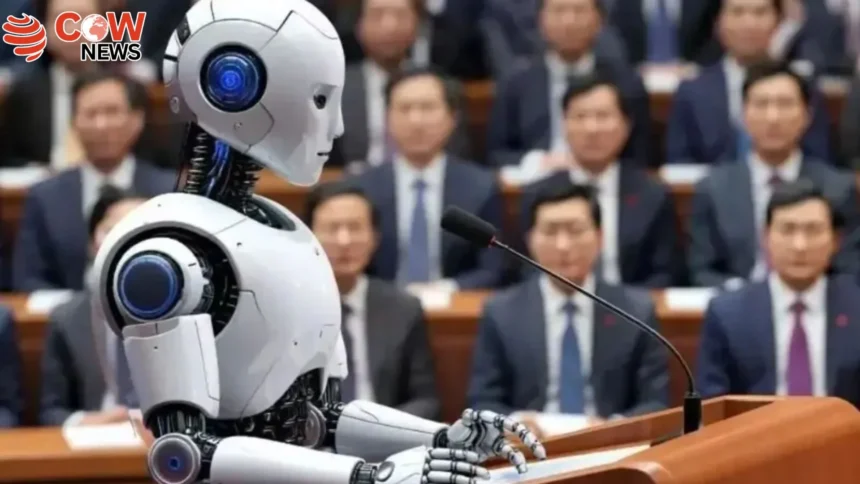Tokyo ( The COW News Digital) The influence of artificial intelligence (AI) has now reached the political arena, with a Japanese political party announcing a groundbreaking move to hand over its leadership to an AI model. The Path to Rebirth Party, a small but active political group, made the announcement after a crushing defeat in recent national elections.
According to Japanese media, the party’s founder and leader, Shinji Ishimaru, resigned after the party failed to secure a single seat in the Tokyo Assembly and House of Councillors elections earlier this year. Ishimaru, a former mayor of a small town in western Japan and runner-up in the 2024 Tokyo gubernatorial race, had launched the party in January with the aim of shaking up Japanese politics. Despite generating online buzz and attracting a young following, the party struggled to present a clear manifesto or cohesive policy platform—factors analysts say contributed to its downfall.
Following Ishimaru’s resignation, party officials decided to adopt a bold, tech-driven strategy by naming an AI model as the party’s new leader. In a press conference, Koki Okumura, a doctoral student in artificial intelligence at Kyoto University and an active party member, confirmed the decision.
“Our next leader will not be a human, but an AI model,” Okumura said. “This AI will not issue direct commands to members, but will provide guidance on fair resource allocation, policy development, and election strategy.”
The party has not yet finalized the AI’s scope of authority or responsibilities, but preparations are underway to train the model on policy data, voter preferences, and past election results.
Political analysts say this marks the first time a Japanese political party has publicly chosen an AI system as its official leader, signaling a unique experiment in blending technology with governance. While some view the move as a bold step toward innovation, others raise concerns about the implications of replacing human judgment with algorithmic decision-making in a democratic system.
Observers are watching closely to see if this experiment could set a precedent for future political organizations seeking to use AI for decision-making and campaigning. Whether this approach revitalizes the party or leads to further challenges remains to be seen, but it undoubtedly adds a new dimension to the debate over AI’s role in society.







